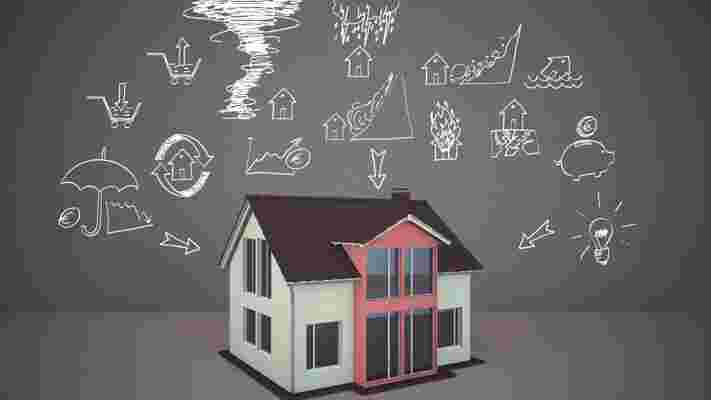7 Questions You Need to Ask When Buying Homeowners Insurance
One of the scariest things about buying a home—besides the fact that it’s probably the most money you’ve spent in your life—is the uncertainty. And even homeowners insurance, the thing that’s supposed to give you peace of mind, has its own set of quandaries. To make the process just a little bit easier, we asked insurance companies what questions homeowners should be asking their agents, but aren’t. Whether you’re a first-time buyer or a long-time owner in need of an insurance review, make sure you get the answers to these queries.

Do I have enough coverage to rebuild my home from the ground up?
Agencies agree that your policy should allow you to completely rebuild your home. “We recommend that you purchase an amount of coverage at least equal to the estimated replacement cost,” says State Farm spokesperson Rachael Risinger. Larry Thursby, vice president of Standard Auto & Product Property/Pricing at Nationwide, recommends working with a local agent who is familiar with the construction materials used in the area for a more accurate reconstruction cost. And Glenn Greenberg, spokesperson for Liberty Mutual, adds, “Don’t forget to ask your insurance company about any home upgrades you may have performed recently, like bathroom remodels, new kitchen appliances or even creating a backyard entertaining space. These could all increase your home value and require additional insurance protection.”
What things do people assume are covered by a standard homeowner policy but may not be?
Your regular policy only insures so much and things like smartphones, computers, and other valuables may need additional coverage.“Consumers are not always aware of the extra protection they might need for valuables,” says Greenberg. “Whether it's an expensive engagement ring or a rare stamp collection, some things aren't covered by your standard home policy. For high valued items, like engagement rings, artwork, etc., consumers should look into “scheduling” the property. Scheduling is an insurance term meaning the item is on a "schedule" and insured separately—it is not covered under the general personal property limit.”
Do I have coverage in the case of a natural disaster?
“There are numerous earthquakes in the U.S. every year, yet many Americans do not have adequate coverage to repair damages resulting from earthquakes,” says Thursby. And according to Risinger, standard homeowners insurance also does not cover flooding and many companies do not sell flood insurance, so customers should look into securing a policy from the National Flood Insurance Program.
Do I need coverage if I rent my home on Airbnb?
The sharing economy means extra income, but also extra risk and liability. Some companies, such as Allstate, offer additional coverage in case of damage from renters or guests. You’ll also want to let your agent know if you have non-standard items that could cause injury such as a pool, shed, or trampoline.
Are there discounts I’m missing out on?
“Before you renew your policy, speak with your agent about discounts that may be available,” says Risinger. “You may qualify for discounts for having alarm systems or higher deductibles.” Don’t assume you know all the possible savings. For instance, Liberty Mutual offers a discount for customers with smart home devices. And if you have a car, discounts may be available if you insure it with the same company.
What are the most common claims in my area?
Why not learn from the others? Allstate spokesperson Justin Herndon suggests asking your agent what claims come up frequently so you know you’ll be covered.
Is my deductible too high?
It’s important to weigh the pros and cons of a low premium. “While price is important, it is also important to understand whether or not you would be able to afford the deductible in the event of a covered loss, says Herndon. “Choosing a 5% all peril deductible may be good for reducing your monthly premium but can also be a challenge should it result in a high out-of-pocket deductible.”